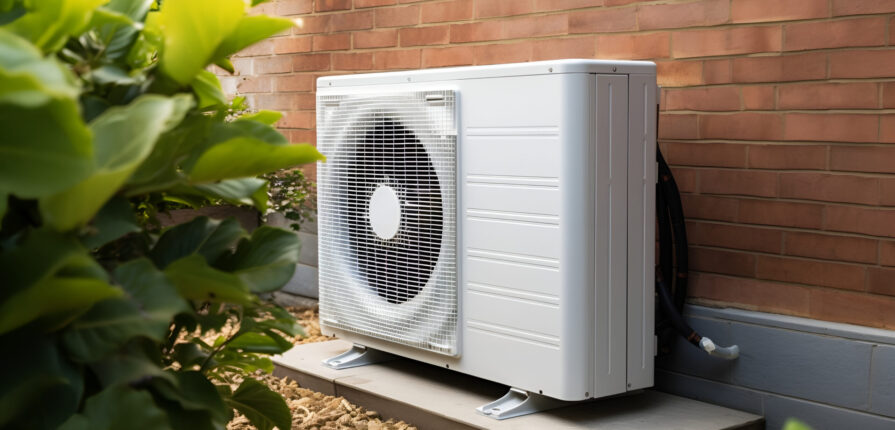Air conditioning units come in various types and configurations, each suited for different needs and spaces. Below is a detailed overview of common air conditioning units:
1. Window Air Conditioners
Features:
- Installed in a window or a slot in an exterior wall.
- Suitable for cooling single rooms.
- Cost-effective and relatively easy to install.
- Limited to spaces with compatible windows.
Pros:
- Affordable.
- Easy to install and remove.
- No need for extensive ductwork.
Cons:
- Blocks window view.
- Can be noisy.
- Not suitable for large spaces.
Ideal For: Small apartments, single rooms, temporary cooling solutions.
2. Split Air Conditioners
Features:
- Consists of an indoor unit and an outdoor unit.
- Connected by refrigerant lines.
- Provides cooling or heating (inverter models).
- More energy-efficient and quieter than window units.
Pros:
- Quiet operation.
- Efficient and powerful.
- Aesthetic indoor units.
Cons:
- Higher initial cost.
- Requires professional installation.
Ideal For: Homes, offices, small commercial spaces.
3. Portable Air Conditioners
Features:
- Stand-alone units that can be moved from room to room.
- Uses a hose to vent warm air outside through a window or sliding door.
Pros:
- No permanent installation.
- Can be moved as needed.
- Suitable for renters.
Cons:
- Less efficient than window or split units.
- Noisy.
- Requires space for the hose.
Ideal For: Renters, temporary spaces, supplemental cooling.
4. Central Air Conditioning Systems
Features:
- Provides cooling for an entire building through ductwork.
- Typically integrates with a furnace or air handler.
- Controlled by a central thermostat.
Pros:
- Even cooling throughout the building.
- Discreet installation (no units visible in rooms).
- Can improve indoor air quality with proper filtration.
Cons:
- Expensive installation.
- Requires ductwork.
- Higher maintenance.
Ideal For: Whole-house cooling, large buildings, new constructions.
5. Ductless Mini-Split Systems
Features:
- Similar to split systems but without ductwork.
- Multiple indoor units can connect to a single outdoor unit.
- Ideal for zoning.
Pros:
- Flexible installation.
- Efficient.
- Individual room control.
Cons:
- Higher cost than window units.
- Visible indoor units.
Ideal For: Homes without ductwork, add-ons, multi-room applications.
6. Heat Pumps
Features:
- Provides both heating and cooling.
- Uses a refrigerant cycle to transfer heat.
- Can be ducted or ductless.
Pros:
- Energy-efficient.
- Year-round use (heating and cooling).
- Eco-friendly.
Cons:
- Higher upfront cost.
- Less effective in extremely cold climates.
Ideal For: Mild to moderate climates, energy-conscious homeowners.
7. Evaporative Coolers (Swamp Coolers)
Features:
- Uses water evaporation to cool the air.
- Works best in dry climates.
- Adds moisture to the air.
Pros:
- Low energy consumption.
- Eco-friendly.
- Provides humidification.
Cons:
- Less effective in humid climates.
- Regular maintenance needed.
Ideal For: Dry climates, areas with low humidity.
8. Packaged Terminal Air Conditioners (PTACs)
Features:
- Common in hotels and motels.
- Self-contained units installed through an exterior wall.
- Provides heating and cooling.
Pros:
- All-in-one system.
- Efficient for individual rooms.
- Easy replacement.
Cons:
- Not aesthetically pleasing.
- Requires a wall slot.
Ideal For: Hotels, motels, assisted living facilities, small apartments.
Selection Tips:
- Space Size: Larger spaces require more powerful units.
- Energy Efficiency: Look for units with high SEER (Seasonal Energy Efficiency Ratio) ratings.
- Installation: Consider ease and cost of installation.
- Climate: Choose a system suited for the local climate.
- Budget: Balance upfront costs with operating costs.
Conclusion
Choosing the right air conditioning unit involves considering your specific needs, space, and budget. Understanding the various options available can help you make an informed decision for effective and efficient cooling.



Recent Comments